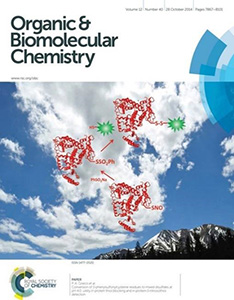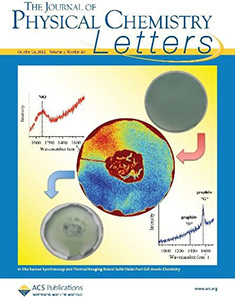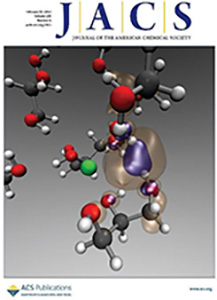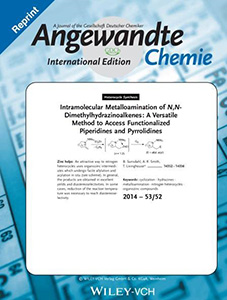The Department of Chemistry and Biochemistry Assessment Report– PhD Programs- Fall 2015
Prepared by Mary Cloninger and Doreen Brown
MSU’s Mission
Montana State University, the state’s land grant institution, educates students, creates knowledge and art, and serves communities by integrating learning, discovery and engagement.
The Department of Chemistry and Biochemistry Mission
The mission of the Department of Chemistry and Biochemistry is to provide students with educational experiences that empower and guide them to think critically and creatively for long term professional success in their chosen fields.
The following assessment report highlights the Department of Chemistry and Biochemistry’s Ph.D. programs in chemistry and biochemistry based on data from 2013, 2014 and 2015. The report begins with facts about the program in the last 3 years and then presents information on the Department’s and the Graduate School’s requirements. Data on Ph.D. learning outcomes are also presented.
Facts about the Program
- 74 graduate students were enrolled in Fall of 2013
- 68 graduate students were enrolled in the Fall of 2014
- 67 graduate students are enrolled in the Fall of 2015
Table 1 below provides the number of graduate students in the program in the Fall of 2015 based on their entering class year. Of the current total, 6 students are on either a thesis or coursework (CW) Master (MS) track. All other students are pursuing a Ph.D. in chemistry or biochemistry.
|
2015
|
2014
|
2013
|
2012
|
2011
|
2010
|
2009
|
2008
|
|
10
|
11
|
14
|
12
|
11
|
7
|
1
|
1
|
Low attrition rate for the past 3 entering classes:
- Of the 20 students that entered in Fall of 2012, 2 students did not pass the qualifying exams and left the program. One student transferred to medical school, one student received a CW MS and 2 students transferred to the newly created Materials Science Program at
- In the entering class of 2013 (14 students), ten students are pursuing PhD degrees and 4 students changed to the MS
- In the entering class of 2014, 10 students remain in the PhD program (1 person left).
1. Qualifying Exams
All first year students take qualifying exams (proficiencies) a department requirement, to demonstrate their preparedness for an advanced degree in our programs. Students are required to pass 3 proficiency exams in their first year of graduate school to remain in good standing with the department. The exams are offered 4 times a year and except for the structural and molecular biology exam, all exams are standardized American Chemistry Society (ACS) exams given in 5 different sub-disciplines. As graded in the past two years, the outcome for any exam can be a Full Pass (FP) Master Pass (MP) or a No Pass (NP). As determined by ACS norms for most tests, a FP is set at the 55th percentile, the MP is set at ~ 50th percentile and scores below the 50th percentile are considered a NP. The names and results of each student who took proficiencies in the entering classes of 2013, and 2014 appear in Appendix A. We provided the first round of results from students in the entering class of 2015.
Results:
Entering Class of 2013
Of the 14 students that entered the Ph.D. program in 2013, all students passed their proficiency requirement in their first year of graduate school for a 100% success rate. One student who transferred into the program did not have to take the qualifying exams.
Entering Class of 2014
Of the 11 students that entered the Ph.D. program in the Fall of 2014, all students passed their proficiency requirement during their first year of graduate school for a 100% success rate.
Entering Class of 2015
Of the 9 students taking the proficiency exams, 2 student have the met the department requirement of passing 3 exams. Three students have 2 full passes, and the remaining 5 students have 1 full pass or none.
2. Comprehensive Exams
The Graduate School requires a comprehensive exam after 2/3 of a student’s coursework has been completed. Typically our department has students defend written and oral portions of the exam (at the same time) during the student’s second semester of their second year of graduate school provided they are in good standing. See Appendix B for names of those students who took the exam in 2013/2014, and 2014/2015. A summary of the results are below.
Nine students that were in good standing from the class of 2013 successfully defended their written and oral comprehensive exams. Four students in the class of 2013 changed from a PhD track to an MS route and were not required to take the exam. One student successfully defended his MS and has remained en-route to a Ph.D. in chemistry. He will take his comprehensive exam in the Fall of 2015.
Eleven students from the entering class of 2014 are in good standing and are poised to complete the comprehensive exam requirement in Spring of 2016.
3. Department Requirement- 4th year seminar
The Department of Chemistry and Biochemistry requires that all students in their 4th year of graduate school give a public research seminar. The students meet with their Ph.D. committees after the seminar to discuss relevant research questions and to provide feedback on progress and time of expected graduation. It is expected that the student will graduate with their degree ~ 1-2 years after they give their seminar.
4. Graduation
Table 2 summarizes our graduation statistics for the last 7 years. Included in Table 2 are the numbers of credits, average GPA and average number of years the students took to graduate with either an MS or Ph.D. The names of students who graduated in the 2013, 2014 and currently from 2015 appear in Appendix C.
|
Year
|
Degree
|
N
|
Average Credits
|
Average GPA
|
Average #yrs to graduate
|
|---|---|---|---|---|---|
|
2009
|
MS
|
4 |
42.5 |
3.51 |
2.8
|
|
PhD
|
7
|
76.3
|
3.7
|
5.7
|
|
|
2010
|
MS
|
3
|
38
|
3.67
|
3
|
|
PhD
|
8
|
80.5
|
3.75
|
5.4
|
|
|
2011
|
MS
|
7
|
47.85
|
3.55
|
3.7
|
|
PhD
|
4
|
72.5
|
3.74
|
5
|
|
|
2012
|
MS
|
6
|
39.5
|
3.46
|
3.3
|
|
PhD
|
6
|
78.33
|
3.7
|
5.7
|
|
|
2013
|
MS
|
4
|
45.25
|
3.66
|
3.5
|
|
PhD
|
8
|
85.15
|
3.72
|
6.3
|
|
|
2014
|
MS
|
1
|
47
|
3.55
|
4
|
|
PhD
|
13
|
69.91
|
3.59
|
5.8
|
|
|
2015
|
MS
|
2
|
33.0
|
3.42
|
2.5
|
|
PhD
|
13
|
69.13
|
3.75
|
5.7
|
Program Learning Outcomes as Presented in 2014
For doctoral students:
- Demonstrate mastery of subject content
- Demonstrate effective oral and written communication
- Conduct independent research and analysis in their disciple and contribute original and substantive work in their
- Demonstrate independent scientific thinking and advanced knowledge in their current discipline and in related areas of their discipline.
- Demonstrate knowledge of basic lab safety and the requirements to assist in establishing a safe lab
- Understand ethical issues and responsibilities especially in matters related to professionalism, data collection, the laboratory setting and in writing and publishing theses, dissertations and scientific papers.
- Professionalization into the field of study: publications, presentations, attended conferences, received funded fellowships, and professional association activities.
Program Learning Outcomes 1-4;
Fall 2014-Summer 2015 only
We created a rubric (Appendix D) to evaluate learning outcomes 1-4. For ease, in the assessing outcomes, 1, 3 and 4 were combined to evaluate the student. We evaluated the student separately on written and oral communication skills.
In the Fall of 2014, we began to distribute the rubric to 3 faculty members on a student’s committee at the student’s Ph.D. defense. We did not evaluate students who took their comprehensive exams during Fall/Spring ‘14/’15 as we were refining the rubric. We will begin to have results on comprehensive exams at the end of spring 2016. The overall scores for each of the outcomes assessed were averaged for each student. For each learning outcome, an average score of 1 was unacceptable; 2 was acceptable and 3 exceptional. Data were collected on 14 students.
On the outcome “the student has effective oral communication skills”, 100% of our students averaged a score of 2 (acceptable) or better. On the outcome “the student has effective written communication skills, 12 students averaged a 2 (acceptable) or better and 2 students averaged below a 2 on this outcome. On the combined outcomes of 1,3 and 4 “the student demonstrated mastery of subject content and successfully conducted independent research and analysis contributing original substantive work in their field” 13 students averaged a 2 (acceptable) or better. One student averaged a 1.5 on this outcome.
All 14 students earned a Ph.D. in chemistry or biochemistry.
Program Learning Outcomes 5 and 6;
All entering students (AY 2013-2014, 2014-2015 and AY 2015-16 (n=35) have completed ethics training with either the Graduate School and/or the Department of Chemistry and Biochemistry. For the past 3 years, during orientation for the first year graduate students, Professor Mary Cloninger has presented an ethics in research module for all incoming graduate students. In addition to this classroom time, students have completed an online training certification through the Collaborative Institutional Training Initiative (CITI) offered through the University of Miami (https://www.citiprogram.org/.) Students had to attend the classroom training session with Professor Marry Cloninger and pass the necessary CITI online training modules and quizzes in order to be a student in good standing in our department. We will continue this training every year for the new incoming graduate students. Last year (Fall 2014) our incoming students also had a training session in research compliance, ethics and legal issues with Justin Cook, Director from the Office of Research (MSU) during the Graduate School’s orientation in August.
In the Fall of 2015, the department head implemented a mandatory fire safety training for all graduate students and TAs affiliated with the department. All 67 graduate students in the department of chemistry and biochemistry completed this (90 min) fire safety training session with Skip Hougland from MSU’s Safety and Risk Management. In addition to mandatory fire safety training, all entering students for the past three years (n=35) participated in a 3-day teaching training orientation with Professor Chris Bahn. This training included a 45 minutes session on laboratory safety. All first year students in the department have to complete an online laboratory safety course through Safety and Risk Management in order to be in good standing with the department. This training will continue forward with every new entering graduate class.
Learning Outcome 7
For the learning outcome of “professionalization into the field of study: publications, presentations, attended conferences, received funded fellowships, and professional association activities, we initially thought that we would collect CVs from the students who obtained a Ph.D. from our department. While some students did email the graduate program director the information, multiple emails to students did not achieve the desired results. The Dean of the Graduate School strongly encouraged every department to file a progress report on every student in Spring of 2015. This form included a section on “progress in research” which addressed all the requirements of this learning outcome. We used this form and gleaned information from the CVs students gave us to assess learning outcome 7. From the data, 97 % of our Ph.D. students who graduated in 2013, 2014 and those in 2015, have demonstrated more than one form of professionalization in their field.
Conclusions
We are pleased with the results to date and strongly feel the program learning outcomes are being met for the Ph.D. programs in chemistry and biochemistry. Our initial threshold responses as decided in Fall of 2014 were the following.
- At least 80% of students will be ranked at a level 2 or 3 in subject content knowledge, written communication, and oral
- At least 90% of students will pass their defense on their first
- 100% of students will successfully complete the ethics training and lab safety training.
- At least 95% of students will demonstrate more than one form of professionalization in their
Our data indicate we are well above the 80% of our students ranked at a level 2 or 3 in subject content knowledge, written communication, and oral communication skills. We had one student that did not pass his Ph.D. on the first try but 97% of our students did. 100% of our students have participated in fire safety training in the past year and 100% of our entering graduate student body in the past 3 years have completed ethics training. It is very likely that most of our students have participated in an ethics training but in 2013, we mandated that entering students had to have the training in orientation. Finally, 97% of our graduated Ph.D. students have demonstrated more than one form of professionalization in their field.
We will make changes to the following program learning outcomes to more accurately reflect our rubric. The collection of data methodology will remain the same except we will include the Graduate School’s progress report form to assess student’s professionalization.
For doctoral students the learning outcomes of the program are:
- Demonstrate mastery of subject content knowledge, conduct independent research and analysis in their disciple and contribute original and substantive work in their field and demonstrate independent scientific thinking and advanced knowledge in their current discipline and in related areas of their discipline.
- Demonstrate effective oral communication skills.
- Demonstrate effective written communication
- Demonstrate knowledge of basic lab safety and the requirements to assist in establishing a safe lab
- Understand ethical issues and responsibilities especially in matters related to professionalism, data collection, the laboratory setting and in writing and publishing theses, dissertations and scientific papers.
- Professionalization into the field of study: publications, presentations, attended conferences, received funded fellowships, and professional association
From 1999-2005 the number of students that left the program without a degree was alarming. Attrition was extremely high (data not shown). It is clear from our graduation records (both in PhD.s and MS degrees) in the past 5 years our students are staying in the program and they are graduating with a degree (Table 2). We have more than doubled the number of graduating students with Ph.D(s.) since 2012. In the Fall of 2015 we should have at least 3 more PhD defenses (and expect passes) surpassing last year’s total number of graduating students with Ph.Ds.
Our students have made incredible contributions in science with papers in prestigious journals as Nature Chemistry, Nano Letters, The Journal of the Gesellschaft Deutscher Chemiker Angewandte Chemie and The Journal of American Chemistry Society. Our students continue to be awarded with Department of Energy, Department of Defense, NASA, National Science Foundation, the Naval Research Laboratory, American Heart Association and National Institutes of Health graduate student awards. Additionally, several students in the department have been awarded the Kopriva Graduate Student Award from the College of Letters and Science and have been awarded research performance awards newly created in 2015 from the Dean of the Graduate School. At least 2 students in the last 3 years from our entering classes have been awarded with Presidential and Merit Awards from the Graduate School.
We are excited about our programs in chemistry and biochemistry especially with the trend that students are staying in the program and graduating with Ph.D.s in less than 6 years. The data reveal the department is succeeding in reaching its mission to graduate students by providing them educational experiences that guide them for long term professional success. At this time, we are not making any major changes to our Ph.D. program in chemistry or biochemistry.
Department of Chemistry and Biochemistry Cover Illustrations (2012-2015)





